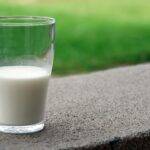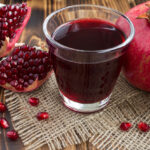Whether it be joint pain, chronic fatigue, acne, digestive issues, or any amount of pain in the body, inflammation is one of the largest root causes of disease today. Diabetes, heart disease, and other major health problems all stem back to inflammation in some way or another. When the body is out of balance, the pH levels of the blood are affected. This not only disturbs the body’s natural processes but also makes you feel pretty horrible in the meantime. Many people are even suffering inflammation and possibly don’t even realize it. And sadly, over-the-counter medications may help one deal with the symptoms, but they’re not taking care of the overall root problem.
Inflammation and Diet: Making the Connection
One of the best ways to improve your health is to eat from the earth. It’s full of the most healing, nutrient-dense foods you can put in your body that are all more alkaline than animal-based foods, sugar, processed foods, caffeine drinks, alcohol, and refined grains. Dairy is one of the most inflammatory foods, along with eggs, meat, and poultry. Sadly, many of these foods make up the majority of the American Diet and are leading us to health problems like heart disease and diabetes.
How to Treat Inflammation at All of Your Meals
Many foods fall in different ranges on the pH scale, according to how acidic or alkaline they are. All animal foods fall under the acid category while plant-based foods vary in their alkaline levels. You don’t need to get too technical with which one is better than another, but it’s a smart choice to work them into your diet when you can.
Here are 10 of some of the lesser-known, yet extremely beneficial alkalizing foods to add to your meals:
You might write off those dark lettuces as nothing worthy of your dollars and skip right to the kale and collards. And while kale and collards are alkalizing superstars, you’re missing out if you pass up those dark-hued lettuce varieties. Their deep color indicates their high nutrient content, including chlorophyll for your blood sugar, Vitamin K, and lots of Vitamin C. They’re some of the easier greens to digest.
Celery is a fantastic alkalizing food for several reasons. It’s packed with water, Vitamin C, and K, and also full of natural electrolytes. This is important for bringing balance to the body and preventing electrolyte loss that can cause inflammation on its own. You’ll also be happy to hear that celery helps reduce high blood pressure. Since hypertension (high blood pressure) can lead to heart disease or be a symptom, it’s especially important to eat foods that help combat this issue. Celery can be chopped and diced anywhere, not just eaten as a snack; sneak it in a smoothie, juice with it, make this Cream of Celery Soup, or whatever else you fancy too.
3. Carrots
All root vegetables will provide some alkalizing benefits, yet carrots offer a special punch all on their own. Full of Vitamin A and C, and many cleansing benefits, carrots have been juiced for years due to their healing and alkalizing properties. Try using them in your next green juice, using them raw in dishes of all kinds, or even roasting them in the oven slightly to add a caramelized flavor. Though cooking will make them a little acidic, they’re still more alkalizing than any animal-based or processed food. Sweet potatoes and orange winter squash also provide similar benefits. You can also try these Rosemary Roasted Carrots, these Curry Spiced Carrots, or these Spiced Carrots With Pistachios.
Dulse, kelp, wakame, agar agar, nori, and other sea vegetables are some of the most mineral-rich foods on the planet. Rich in magnesium, potassium, natural sodium, and Vitamins A, C, and K, these vegetables bring excellent healing benefits. They’re commonly eaten in a macrobiotic diet for this purpose but can be used by anyone. Sea veggies are also particularly great for adding a salty, ocean-like flavor in place of tuna, though they make tasty additions to soups and salads as well. Nori wraps are also an excellent replacement for grain-based wraps if you’d like to try those, too.
5. Sprouted Almonds
Source: StacySpensley/Flickr
Sprouted almonds are another good choice for taking in more alkalizing nutrients, Almonds are one of the most alkalizing nuts and seeds of all kinds, but those that are soaked and sprouted provide even more benefits. The soaking and sprouting process reduces some of the acidic properties, making them easier to digest. This also helps your body assimilate the magnesium, Vitamin E, and potassium in almonds better as well. Almonds are also a good source of vegan protein and fiber, so work these into your diet either whole or use raw, sprouted almond butter. Using these in place of roasted nuts and seeds can lower inflammation and also provide sustenance in place of rancid oils or animal-based fats.
6. Bok Choy
Bok choy is packed with Vitamin K and fiber, along with Vitamin C. It’s also rich in antioxidants that reduce inflammation and helps fight cancerous cells like other cruciferous veggies. Add bok choy to soups, stews, bake it in halves, or shred it and use it in raw salads or wraps. For recipes, try this Simple Baby Bok Choy, this Sweet and Spicy Bok Choy, or this Korean Bok Choy.
7. Raw Pumpkin Seeds
Raw (not roasted) green heirloom pumpkin seeds are one of the only nuts and seeds to leave an alkaline ash in the blood. This means they’re not just alkaline, but they also help the body reach a more alkaline state on their own. Hemp seeds are the only other nut or seed that provides this unique property. Pumpkin seeds’ nutritional benefits are evident in their color, which indicates the high amount of chlorophyll they contain. They’re also a good source of iron and protein. Pumpkin seeds go great in raw dishes of any kind, or just make excellent entree toppers for a nice, sweet crunch!
8. Pink Sea Salt
Source: Caroline/Flickr
Salt is normally avoided on healthy diets, but pink sea salt (also called rock Himalayan sea salt) is an exception. This salt contains over 84 trace minerals, specifically magnesium, potassium, and calcium. Pink salt can help alleviate headaches, joint pain, fatigue, and muscle weakness, and may also improve digestion. A salt-free diet isn’t necessary to eat healthy, so long as you know what kinds to use. Pink sea salt goes great in smoothies, salads, soups, or any entree of your choosing. Consume it raw if possible to get the most benefits, and remember just a pinch will go a long way.
9. Matcha Green Tea
Forget this food’s popularity right now – that’s not important. What is important is the nutrition that this form of green tea contains. It’s neither heated nor processed like other forms of green tea, so think of it like any other raw, green superfood. And if you buy quality matcha, then you’ll be able to physically see this abundance of nutrition through the alarmingly bright green color (almost neon green) these teas contain. Matcha is packed with chlorophyll and forty times the antioxidants of regular green tea. It can help improve your mood, alleviate inflammation, and contains less caffeine than coffee and other acidic caffeinated drinks. It has a particularly calming effect on the body and also helps balance blood sugar cravings.
Though you can use matcha as a hot tea, it tastes much better (and sweeter) when used in smoothies. However, if you’re looking to replace your morning cup of coffee, a hot matcha latte with some vanilla, unsweetened non-dairy milk, and stevia is a great choice!
10. Spirulina
Not a sea vegetable, but a form of sea algae (which are different plants), spirulina is a rock-solid choice to alkalize your blood. While broccoli, kale, and other green vegetables are amazing for you, nothing rivals the nutrition in just a teaspoon of spirulina. Did you know 1 teaspoon of this sea algae contains 4 grams of protein, 80 percent of your daily iron content, and most of your requirements for B vitamins? It’s also packed with Vitamin A, containing over 800 percent of your daily needs! The most nutrient-dense source of protein per weight, this food is one to add to your day. All you need is a teaspoon to get the benefits, but be sure you buy a high-quality brand that does routine testing to eliminate impurities. Try it in this Raspberry and Blue Spirulina Smoothie, this Deep Blue Sea Blend, and these Spirulina Snackies.
Other helpful fruits and veggies that leave an alkaline ash in the body include beets, cucumber, herbs, asparagus, all leafy greens, lemons, tomatoes, and broccoli. Add as many of these to your day and you can bet that your body will thank you!
Easy Ways to Help the Planet:
This content was originally published here.





















